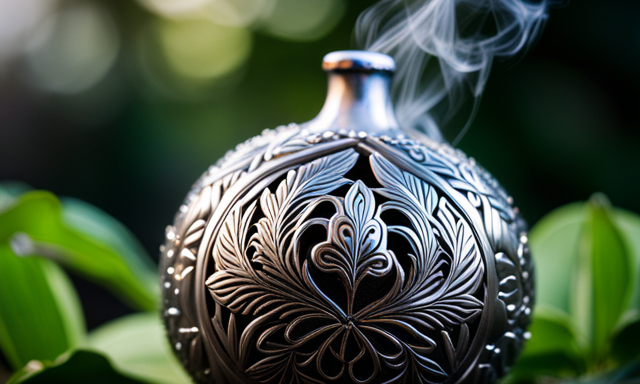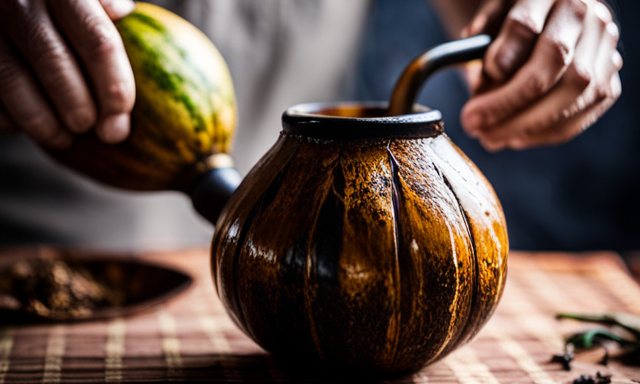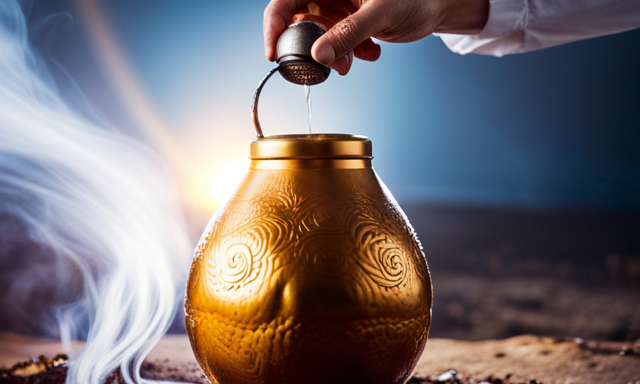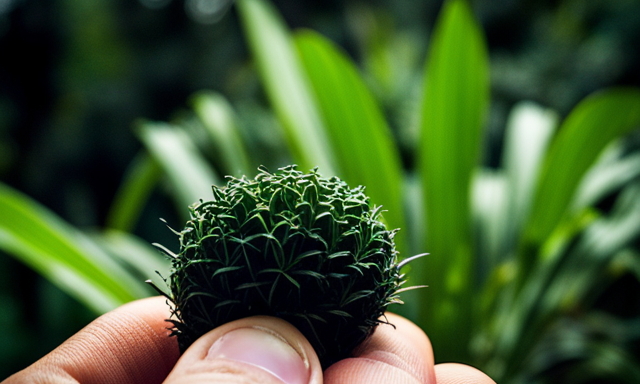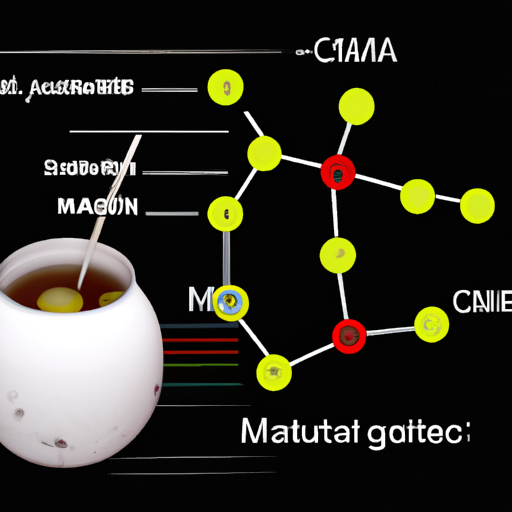In the showdown of power and energy, yerba mate and coffee stand as two giants competing for the crown of the supreme energizer. Each drink brings a varying amount of caffeine to the table, with yerba mate usually having a lower caffeine content compared to coffee. Nevertheless, what yerba mate falls short in caffeine, it compensates with other invigorating components like theobromine and theophylline. These elements offer a more gradual and enduring lift in energy, unlike the immediate surge that coffee delivers.
When it comes to health benefits, both yerba mate and coffee have their own unique advantages. Yerba mate is rich in antioxidants and has been associated with various health benefits, including improved digestion and enhanced immune function. Coffee, on the other hand, has been linked to a reduced risk of certain diseases such as Parkinson’s disease and type 2 diabetes.
In terms of stimulant effects, yerba mate is known for its ability to increase mental alertness and focus without the jitters often associated with coffee. This is due to the combination of caffeine and other compounds present in yerba mate, which work together to provide a balanced and sustained energy boost. Coffee, on the other hand, is known for its quick and intense stimulant effects, which can sometimes lead to feelings of anxiety or restlessness.
When comparing the nutritional profiles of yerba mate and coffee, they both contain essential vitamins and minerals. Yerba mate is a good source of vitamins B1, B2, and B3, as well as minerals such as potassium, magnesium, and manganese. Coffee, on the other hand, is rich in antioxidants and contains small amounts of vitamins B2 and B3, as well as minerals like potassium and magnesium.
In addition to their physical effects, both yerba mate and coffee hold cultural significance in different societies. Yerba mate is deeply rooted in South American traditions and is often consumed in a communal setting, where it is passed around and shared among friends and family. Coffee, on the other hand, has a strong presence in many Western cultures and is often associated with social gatherings and productivity.
In conclusion, the debate between yerba mate and coffee is a complex one, with each beverage offering its own unique strengths and benefits. While yerba mate may not pack as much of a caffeine punch as coffee, its combination of stimulating compounds and smoother energy boost make it a popular choice for those seeking a sustained and balanced source of energy. Coffee, on the other hand, provides a quick and intense jolt of caffeine, making it a go-to choice for those in need of an immediate pick-me-up. Ultimately, the choice between yerba mate and coffee comes down to personal preference and individual needs. So, whether you prefer the smooth and steady energy of yerba mate or the quick and powerful kick of coffee, both beverages have their place in the world of stimulants.
Key Takeaways
- Yerba mate has less caffeine than coffee, with 30-50 milligrams per 8-ounce serving compared to around 95 milligrams per cup of coffee.
- Yerba mate offers a more sustained energy boost compared to coffee, providing a smoother and longer-lasting effect without jitters.
- Yerba mate has higher levels of antioxidants, polyphenols, and flavonoids compared to coffee, making it a healthier choice for reducing inflammation and protecting against chronic diseases.
- Yerba mate stimulates mental alertness and focus without the intense burst of energy that coffee provides, offering a milder stimulation and potentially improving memory and learning.
Understanding the Caffeine Content of Yerba Mate and Coffee
Understanding the caffeine content of yerba mate and coffee is important in order to make informed choices about which beverage to consume. Here are some key points to consider:
-
Yerba mate contains about 30-50 milligrams of caffeine per 8-ounce serving, while coffee typically has 95 milligrams. This means that yerba mate has significantly less caffeine than coffee.
-
Despite its lower caffeine content, the caffeine in yerba mate is absorbed and metabolized differently by the body. This results in a more sustained energy boost compared to the quick spike and crash often experienced with coffee.
-
Yerba mate’s caffeine is accompanied by other beneficial compounds like theobromine and theophylline. These compounds can enhance alertness and provide additional health benefits.
In summary, while yerba mate may have less caffeine than coffee, its unique combination of caffeine and other compounds can offer a different and potentially more beneficial energy experience. Now, let’s delve into the health benefits of yerba mate and coffee to further understand their differences.
Comparing the Health Benefits of Yerba Mate and Coffee
Indulging in a cup of yerba mate or coffee can tantalize your taste buds while delivering a punch of invigorating benefits.
When it comes to caffeine comparison, yerba mate contains about 30-50 milligrams of caffeine per serving, while coffee has around 95 milligrams. This means that coffee is generally stronger in terms of caffeine content.
However, what makes yerba mate stand out is its rich antioxidant benefits. Yerba mate is packed with polyphenols and flavonoids, which are powerful antioxidants that can help reduce inflammation and protect against chronic diseases. Coffee also contains antioxidants, but yerba mate has been found to have higher levels.
As I explore the stimulant effects of yerba mate and coffee in the next section, you’ll see that caffeine content is just one aspect to consider when comparing these two beverages.
Exploring the Stimulant Effects of Yerba Mate and Coffee
When exploring the stimulant effects of yerba mate and coffee, brace yourself for a jolt of energy that will leave you feeling refreshed and ready to take on the day. Both yerba mate and coffee contain caffeine, but yerba mate generally has a lower caffeine content compared to coffee. This means that while both beverages can provide a boost in alertness and focus, yerba mate may offer a milder stimulation.
Here are some key points to consider:
- Yerba mate provides a gradual and sustained energy boost, avoiding the jittery feeling often associated with coffee.
- Coffee, on the other hand, delivers a more immediate and intense burst of energy.
- Yerba mate contains other stimulants like theobromine and theophylline, which can enhance focus and overall cognitive function.
- Long-term effects of excessive caffeine consumption from both yerba mate and coffee can include sleep disturbances, increased heart rate, and potential dependency.
As we move forward into analyzing the nutritional profiles of yerba mate and coffee, it’s important to note that these stimulant effects play a significant role in our daily lives.
Analyzing the Nutritional Profiles of Yerba Mate and Coffee
Analyzing the nutritional profiles of yerba mate and coffee reveals some interesting differences. Yerba mate contains about 30-50 milligrams of caffeine per serving, while coffee has around 95 milligrams per cup. This means that coffee has a higher caffeine content compared to yerba mate. However, it’s important to note that the effects of caffeine can vary from person to person.
Moving on to antioxidant levels, yerba mate is rich in antioxidants called polyphenols, which have been linked to various health benefits such as reducing inflammation and protecting against chronic diseases. Coffee also contains antioxidants, but in lower amounts compared to yerba mate. These antioxidants can help fight oxidative stress in the body.
Now, let’s examine the impact on mental alertness and focus.
Examining the Impact on Mental Alertness and Focus
Boost your mental alertness and focus with yerba mate or coffee, like a jolt of lightning charging your brain. Both beverages have been shown to enhance mental performance and cognitive function.
Yerba mate contains caffeine, theobromine, and theophylline, which stimulate the central nervous system and increase alertness. It also contains polyphenols, which have neuroprotective properties and may improve memory and learning.
Coffee, on the other hand, is known for its high caffeine content, which stimulates the release of neurotransmitters like dopamine and norepinephrine, improving focus and attention. Additionally, coffee contains antioxidants that protect against age-related cognitive decline.
While both yerba mate and coffee can enhance mental alertness and focus, it’s important to note that individual responses may vary.
Now, let’s delve into investigating the potential side effects of yerba mate and coffee.
Investigating the Potential Side Effects of Yerba Mate and Coffee
Discover the potential side effects of these popular beverages, and what you need to know before indulging in your favorite pick-me-up.
Both yerba mate and coffee have potential risks and may cause side effects. Yerba mate contains caffeine and other compounds that can increase heart rate and blood pressure, leading to palpitations and high blood pressure in some individuals. It may also cause digestive issues like stomach cramps, diarrhea, and nausea.
Coffee, on the other hand, can cause caffeine-induced insomnia, jitters, and restlessness. Long-term effects of excessive caffeine consumption include increased risk of osteoporosis, heart disease, and dependence. It’s important to be aware of these potential risks and to consume these beverages in moderation.
Transitioning into the subsequent section, it’s also worth considering the rituals and traditions surrounding yerba mate and coffee.
Considering the Rituals and Traditions Surrounding Yerba Mate and Coffee
Embracing the rich tapestry of customs and practices, both yerba mate and coffee envelop us in their warm embrace, intertwining history and culture with every sip. When it comes to caffeine consumption, both beverages have their own unique rituals and traditions.
Yerba mate, traditionally consumed in South America, is often enjoyed in a shared setting with friends or family, using a gourd and a bombilla. This communal aspect adds to the cultural significance of mate, fostering a sense of connection and togetherness.
On the other hand, coffee has its own set of cultural practices, such as the morning routine of savoring a cup of joe to kickstart the day. These rituals not only enhance the enjoyment of the beverages, but also serve as a way to bond with others and create meaningful experiences.
Exploring the cultural significance of yerba mate and coffee allows us to delve deeper into the historical and social contexts that surround these beloved beverages.
Exploring the Cultural Significance of Yerba Mate and Coffee
Immerse yourself in the vibrant cultural tapestry woven by the shared rituals and traditions surrounding the beloved beverages of yerba mate and coffee.
Both yerba mate and coffee have deep cultural significance and are consumed in unique ways around the world.
The patterns of caffeine consumption vary across cultures, with some societies favoring one beverage over the other.
Yerba mate holds a special place in South American culture, where it is often shared in social gatherings, symbolizing friendship and hospitality.
In contrast, coffee has become a symbol of productivity and energy in many Western cultures.
These cultural symbols reflect the different ways in which yerba mate and coffee are integrated into daily life.
As we delve into personal experiences with yerba mate and coffee, we can further understand the nuances of these cultural traditions.
Personal Experiences: Yerba Mate vs. Coffee
Indulging in the rich aroma and shared camaraderie of sipping yerba mate or coffee evokes memories of cozy mornings and lively conversations. Personally, I have experienced both beverages and have developed my own preferences. Yerba mate, with its earthy taste and smooth finish, provides me with a gentle energy boost that lasts throughout the day. On the other hand, coffee gives me an immediate jolt of energy, but I often experience jitters and a crash later on. While personal preferences play a significant role in choosing between yerba mate and coffee, it is essential to consider the long-term effects as well. Yerba mate is known for its high antioxidant content and potential health benefits, while excessive coffee consumption may lead to negative effects like insomnia and digestive issues. Making an informed choice between these two popular beverages is crucial for maintaining overall well-being and energy levels throughout the day. Transitioning into the subsequent section, let’s explore the various factors to consider when deciding between yerba mate and coffee.
Making an Informed Choice: Yerba Mate or Coffee?
When deciding between yerba mate and coffee, it’s important to consider the balance between a gentle, steady energy and an immediate burst of vigor. Personal taste preferences and understanding the potential health risks play a significant role in making an informed choice.
Yerba mate offers a unique flavor profile with its herbal and grassy notes, which some people find more appealing than the bold and bitter taste of coffee. Additionally, yerba mate contains a variety of beneficial compounds such as antioxidants and vitamins.
However, it’s important to note that excessive consumption of both yerba mate and coffee can lead to potential health risks such as increased heart rate, digestive issues, and sleep disturbances. It’s crucial to listen to your body and make a choice that aligns with your individual preferences and health needs.
Frequently Asked Questions
How does the caffeine content of yerba mate and coffee affect sleep quality?
The impact of caffeine consumption on sleep quality is well-documented. Both yerba mate and coffee contain caffeine, which can disrupt sleep patterns and decrease sleep quality if consumed close to bedtime.
Can yerba mate or coffee help with weight loss?
Yerba mate and coffee can both contribute to weight loss due to their caffeine content. While yerba mate has less caffeine than coffee, it still provides energy and can help boost metabolism, leading to potential weight loss benefits.
Are there any negative effects on digestion from consuming yerba mate or coffee?
There is evidence suggesting that both yerba mate and coffee can have negative effects on gut health, including a possible correlation with heartburn. It is important to consume them in moderation and be mindful of any digestive issues.
How do the antioxidant levels in yerba mate and coffee compare?
When comparing the antioxidant levels of yerba mate and coffee, yerba mate has been found to have higher levels. This is beneficial for health as antioxidants help protect against oxidative stress and inflammation.
Are there any differences in the taste profiles of yerba mate and coffee?
Taste preferences for yerba mate and coffee differ. Yerba mate has an earthy, herbal flavor with hints of grass and bitterness. Coffee offers a rich, bold taste with varying flavor notes like chocolate, nutty, fruity, or floral.
Conclusion
After carefully considering the caffeine content, health benefits, stimulant effects, and nutritional profiles, it is clear that both yerba mate and coffee have their unique qualities.
Yerba mate, with its earthy flavor and invigorating properties, can be seen as a vibrant sunrise, awakening the senses and providing a gentle, sustained energy boost.
On the other hand, coffee, with its bold and robust taste, is like a roaring thunderstorm, jolting the mind into alertness.
Ultimately, the choice between yerba mate and coffee depends on personal preferences and individual needs.


